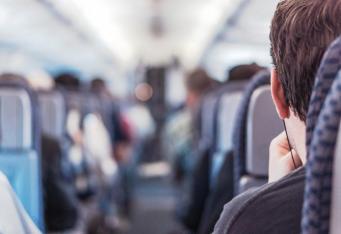- Managing your Practice
-
- Your Benefits
-

Introducing the ultimate Club MD experience
From work to play, and everything in between, we provide you with access to hundreds of deals from recognizable, best-in-class brands, elevating every facet of your life – from practice supports to entertainment, restaurants, electronics, travel, health and wellness, and more. Your Club MD membership ensures that these deals are exclusive to you, eliminating the need to search or negotiate.
Welcome to the ultimate Club MD experience. Your membership, your choices, your journey.
-
- Advocacy & Policy
-
- Collaboration
- News & Events
-

Stay Informed
Stay up to date with important information that impacts the profession and your practice. Doctors of BC provides a range of newsletters that target areas of interest to you.
Subscribe to the President's Letter
Subscribe to Newsletters
-
- About Us
-

Coronavirus – beyond the misinformation
February 12, 2020
Together for Health
On December 31, 2019, China reported a number of mysterious cases of viral pneumonia to the World Health Organization (WHO). Stemming from the central city of Wuhan, in the Hubei Province, the illness was identified as a new virus - a coronavirus, which belongs in the same family as the common cold, and SARs. Experts have dubbed it “the novel coronavirus,” or COVID-19. Instances of the virus have been recorded around the world, from France and Canada, to Japan and the UK.
Fact and fiction
 As concerns around COVID-19 grow, so too has the volume of misinformation online surrounding the illness. The WHO is working with large technology firms, such as Pinterest and Facebook, to stem the tide of articles touting false cures and conspiracy theories around the novel coronavirus’s transmission. Described as an “infodemic”, health misinformation relating to the illness can put people at risk – these “cures” do more harm than good.
As concerns around COVID-19 grow, so too has the volume of misinformation online surrounding the illness. The WHO is working with large technology firms, such as Pinterest and Facebook, to stem the tide of articles touting false cures and conspiracy theories around the novel coronavirus’s transmission. Described as an “infodemic”, health misinformation relating to the illness can put people at risk – these “cures” do more harm than good.
How many cases are there in BC?
According to the BCCDC, as of February 11, there are four confirmed cases in the province. The WHO’s map of affected areas around the world allows you to view the current number of cases being monitored globally.
Symptoms
The virus causes a pneumonia-like respiratory illness, which varies in severity. Symptoms include fever, cough, and breathing difficulties.
 Air travel
Air travel
Many airlines have cancelled flights to China, and some people are concerned about infection risk on planes as the virus spreads globally. According to experts, the risk of contracting a serious viral infection on a plane is low. The Canadian Government has issued a series of travel advisories for the public.
Can I contract the virus by receiving a package from China or another affected country?
No. Misinformed claims have been made online about contracting the novel coronavirus from packages originating in China. According to research, coronaviruses do not survive long on objects such as letters or parcels.
Are masks necessary?
Masks are useful for those who are already ill to protect other people in their vicinity, but wearing a mask at all times is not necessarily going to curb transmission of the virus, according to the US Center for Disease Control. Viruses can be transmitted around the mask, and if it becomes moist it encourages bacterial and viral growth.
 Prioritize hand hygiene
Prioritize hand hygiene
The best protection we currently have against this virus is consistent hand hygiene, along with covering your mouth and nose with a tissue or your elbow when sneezing. Ensure you dispose of tissues correctly. Avoiding close contact with anyone showing symptoms of a respiratory illness is advised.
Anyone who is concerned they may have been exposed to, or are experiencing symptoms of the coronavirus should contact their doctor, local public health office, or call 811.




